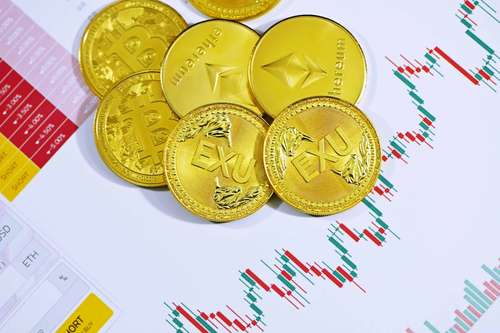A recent probe into the company was just opened by another US state. The Department of Financial Regulation (DFR) of the US state of Vermont has made severe accusations against embattled cryptocurrency lender Celsius Network.
According to a recent declaration by the DFR, Celsius is "seriously insolvent" and lacks the resources and liquidity necessary to fulfill its obligations to account holders and other creditors.
The DFR also argued that Celsius Network has been operating in multiple jurisdictions, including in Vermont, and claimed that the firm has been engaged in unregistered security offering to retail investors. It also pointed out that Celsius does not have a money transmitter license and might have been operating largely without regulatory oversight.
The Department announced joining forces for a multistate inquiry of Celsius, citing these worries. It further stated that the assertions made by Celsius and its CEO regarding the security of customer cash and the lender's capacity to fulfill withdrawal commitments are untrue.
Celsius stopped all withdrawals, swaps, and transfers between customer accounts in the middle of June. Shortly after, the institution let go of about 150 employees as it fought the financial crisis. To "preserve and defend assets," it hired restructuring advisors from the advising company Alvarez & Marsal.
“Celsius has not disclosed adequate or complete information to the public to enable investors to make informed purchases and sales of CEL. Investors who purchase CEL tokens are taking a risk that those tokens will sharply decrease in value, or even become worthless, in the future. Concerted efforts to manipulate the price of CEL may also violate state and federal laws.”
In order to avoid bankruptcy, Celsius has not exactly been open-booked and has chosen the path of secrecy. The lender lost $6 billion in liquidity support from possible investors as a result of its failure to release its financial documents.
A blockchain analytics company called Arkham Intelligence reported earlier this month that Celsius might have utilized client cash to carry out risky leveraged crypto trading methods.
Crypto Lenders in Hotbed
Along with Celsius Network, a number of other cryptocurrency lenders, such as Voyager Digital, have experienced financial difficulties.
The Department of Financial Protection and Innovation (DFPI) of the US state of California is currently investigating a number of businesses that offer customers "interest-bearing crypto-asset accounts" and may have neglected to adequately disclose the risks involved when customers deposit crypto assets onto their platforms.
Invoking "extreme" market conditions, Celsius suspended withdrawals and transfers last month, preventing its 1.7 million customers from redeeming their holdings. Later, the retail crypto lending platform declared that it was looking into several possibilities, including mergers and liabilities restructuring.
Following a significant sell-off in the market for digital currencies seen in recent months, a number of cryto enterprises have encountered challenges.
Market Rumors and Scams
Customers of Celsius might get messages or read articles online urging them to put their bank accounts in "HODL mode" as a sign of support for the company. Celsius has suspended investor accounts as of June 12, 2022. Therefore, putting deposit accounts into "HODL mode" has no benefit to either clients or Celsius, and it is highly doubtful that doing so will have any impact on the value of the cryptocurrency assets stored in such accounts or the value of Celsius assets and investments. Further value reductions are not stopped by the accounts being frozen.
Online forums also encourage investors to take part in a "short squeeze" of the Celsius coin, or CEL. These online communities promote the purchase of CEL tokens in an effort to raise the token's price, harming anyone who might be "short" CEL.
For investors to buy and sell CEL with confidence, Celsius has not provided appropriate or full information to the public. Investors who buy CEL tokens assume the risk that the tokens will eventually depreciate significantly or even lose all of their value. Consistent attempts to influence the price of CEL might also be against the law on a state and federal level.




